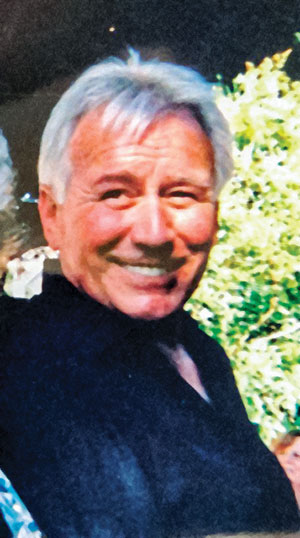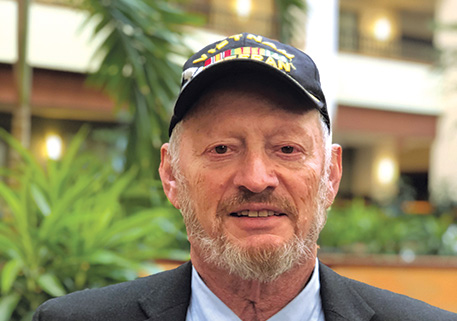
DAV fight for justice results in financial security for amputee’s surviving spouse
More than a half-century after being severely wounded in combat, the late Neil Shankle’s pursuit of increased veterans benefits was finally realized. The news of Shankle’s successful, albeit belated, appeal for benefits came as a shock to his family, ending years of waiting and hoping that his rightful claim would be accepted.
The Vietnam veteran died in 2014, but because DAV had appealed to the Department of Veterans Affairs before his death, his surviving spouse, Nancy Fogg-Shankle, was eligible to receive the disability compensation her husband had earned decades before. The VA approved the claim for Individual Unemployability benefits on Nov. 17 last year—51 years to the day after an enemy grenade attack claimed his right arm above the elbow.
On the day he was wounded, Shankle’s element was headed to a downed U.S. helicopter when an explosion rocked the formation. A rapid burst of enemy fire struck the radio he was carrying, causing the equipment to burn through his back muscles. This combination of injuries would later make wearing a prosthesis nearly impossible.
Once stateside, he spent nine months recovering in a hospital. In addition to his physical injuries, Shankle suffered from the invisible wounds of war, which remained with him for the rest of his life.
“He would talk to me a lot about watching his friends being blown up,” said Fogg-Shankle. “Every day in Vietnam, he wondered who was going to be killed next.”
He was also exposed to Agent Orange, leading to body rashes and, eventually, lung cancer. Fogg-Shankle recalls Neil saying to her, “I know that it’s going to kill me one day.”
It was that belief that led him to DAV National Service Officer Amber Niemi in 2013.
“He wanted me to meet Nancy while he was alive to make sure everything was taken care of for her,” said Niemi, who supervises the DAV office in Portland, Oregon. “He was very concerned that everything was done right.”
In 1971, the VA provided Shankle with Individual Unemployability compensation, a benefit available to eligible disabled veterans whose service-connected disabilities make it impossible to work. But that changed in 1981 when the VA determined his injuries didn’t preclude him from gainful employment, reducing his compensation despite his sacrifices on the battlefield.
“He refused to go back to the VA after that,” said Fogg-Shankle. “It left him confused and very bitter.”
After having his benefits reduced, Shankle went back to school and became a high school history teacher—a job Fogg-Shankle said was made for him, given his love of the subject. His disabilities and memories of combat, however, made seemingly simple tasks twice as hard. After a few years, he decided to leave the classroom.
“He did teach for five years, and he just really had a hard time,” she added. “He would get stressed easily, and it’s a shame, because he was a great history teacher.”
As the years went on, Shankle turned his attention back to his veterans benefits.
Niemi submitted Shankle’s appeal in July 2014, asserting his back and shoulder wounds were improperly rated going back to 1971. The timing of the appeal was crucial in unlocking the benefits he was seeking, according to Niemi.
“Any approved claims that were open prior to the death of a veteran can be transferred to surviving family members,” she said. “If we would have waited to file the appeal after Neil’s passing, it wouldn’t have gone anywhere.”
The VA approved the claim last fall, retroactively increasing Shankle’s total compensation to the level before its arbitrary reduction 40 years ago. By restoring years of benefits, Niemi honored Shankle’s memory by connecting his family with the financial security he sought.
“I just did not believe that anything [with the appeal] would happen at all,” added Fogg-Shankle.
“Amber is the most tenacious person I have ever met.” Shankle’s son, Nick, stressed that what matters most was fulfilling his father’s final wish.
“My dad had been worried and working on this for years,” said Nick. “The case had been brought a few times, but Amber got it done for him.”






